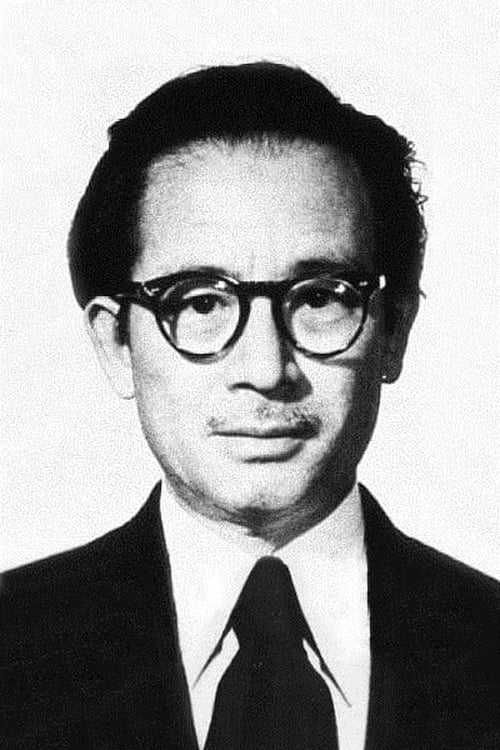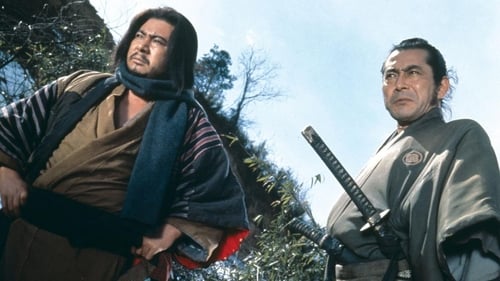
Director
In the Edo period, a nameless ronin accepts an assignment to go to a mountain pass and wait. Near the pass he stops at an inn where a collection of characters gather, including a gang set on stealing shogunate gold that's soon to come over the pass. When the Ronin's assignment becomes clear, to help the gang, he's ordered to kill the inn's residents, including a woman he's rescued from an abusive husband. He's reluctant to murder innocent people; then he learns that the gold shipment is a trap and he's part of a double cross. How he sorts through these divided loyalties tests of his samurai honor, and perhaps of his love for a woman.
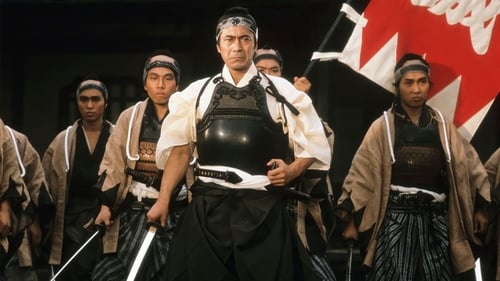
Producer
Near the end of the nineteenth century, as the balance of power shifts from Shogunate towards the Emperor, Japan restlessly awaits the dawning of a new age. But not all are content...The Shinsengumi, a small army of samurai, farmers and peasants, band together to do battle against the tide of history. Their leader, Isami Kondo is a man who rises from farmer to fighter to head the fierce Shinsengumi brigade. Using a stern hand and a heart of gold, he rallies his men in defense of the tottering Shogunate. But bloodshed and treachery lurk around every corner.
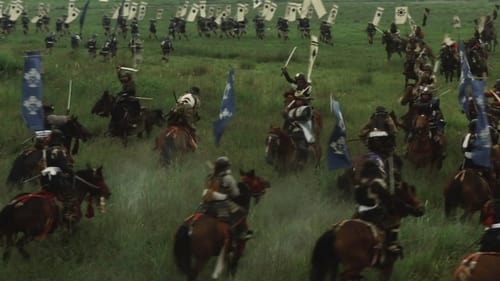
Producer
Kansuke Yamamoto is a samurai who dreams of a country united, peaceful from sea to sea. He enters the service of Takeda, the lord of Kai domain. He convinces Takeda to kill the lord of neighboring Suwa and take his wife as a concubine. He then convinces the widow, Princess Yu, to accept this arrangement and to bear Takeda a son. He pledges them his life. He then spends years using treachery, poetic sensibility, military and political strategy to expand Takeda's realm, advance the claim of Yu's son as the heir, and prepare for an ultimate battle with the forces of Echigo. Has Kansuke overreached? Are his dreams, blinded by love, too big?

Director
Kansuke Yamamoto is a samurai who dreams of a country united, peaceful from sea to sea. He enters the service of Takeda, the lord of Kai domain. He convinces Takeda to kill the lord of neighboring Suwa and take his wife as a concubine. He then convinces the widow, Princess Yu, to accept this arrangement and to bear Takeda a son. He pledges them his life. He then spends years using treachery, poetic sensibility, military and political strategy to expand Takeda's realm, advance the claim of Yu's son as the heir, and prepare for an ultimate battle with the forces of Echigo. Has Kansuke overreached? Are his dreams, blinded by love, too big?

Director
Sasaki Kojiro tells the story of the genius who staked his love, glory, and life on a duel with the supreme master of the sword, Miyamoto Musashi (Tatsuya Nakadai). Oscar winning Hiroshi Inagaki directs this epic motion picture based on Genzo Murakami’s fascinating story. Despite his humble birth, the orphan Sasaki Kojiro (Onoe Kikunosuke) is determined to become the foremost swordsman in all Japan, a title that traditionally belongs to a nobleman. At fencing school, young Kojiro receives the contempt of his classmates because of his superior swordsmanship. When rumors of the upcoming civil war between Toyotomi and Tokugawa clans spread, Kojiro leaves the school and sets out, seizing every opportunity to realize his dream.

Screenplay
Sasaki Kojiro tells the story of the genius who staked his love, glory, and life on a duel with the supreme master of the sword, Miyamoto Musashi (Tatsuya Nakadai). Oscar winning Hiroshi Inagaki directs this epic motion picture based on Genzo Murakami’s fascinating story. Despite his humble birth, the orphan Sasaki Kojiro (Onoe Kikunosuke) is determined to become the foremost swordsman in all Japan, a title that traditionally belongs to a nobleman. At fencing school, young Kojiro receives the contempt of his classmates because of his superior swordsmanship. When rumors of the upcoming civil war between Toyotomi and Tokugawa clans spread, Kojiro leaves the school and sets out, seizing every opportunity to realize his dream.

Screenplay
Farmer Abare Goemon is confronted by brigand-like samurai. He raises an army of farmers to fight them and does so brilliantly. When Lord Asakura sees the success Goemon has achieved, he attempts to recruit him to fight in a conflict between Asakura and another clan. Goemon refuses, and Lord Asakura sets out to destroy him.

Director
Farmer Abare Goemon is confronted by brigand-like samurai. He raises an army of farmers to fight them and does so brilliantly. When Lord Asakura sees the success Goemon has achieved, he attempts to recruit him to fight in a conflict between Asakura and another clan. Goemon refuses, and Lord Asakura sets out to destroy him.
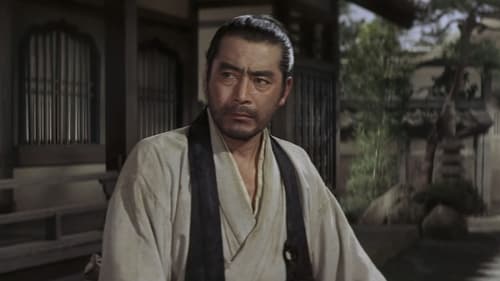
Screenplay
Set at the end of the Siege of Osaka this film follows the exploits of several members of the defeated Toyotomi clan as they cope with the post battle chaos and the persecution of the Shogun's army. Five samurai decide on different fates when it becomes clear that their side is being destroyed. One wants to attack the enemy head on in a final honorable death. Another decides to commit hari-kiri but wants to find a glorious view to do it. His close friend, the "coward", just wants to run and give up the life of a samurai. The final two set their own castle on fire to garner favors from the enemy and therefore avert their own death during the massacre of all defeated soldiers as

Director
Set at the end of the Siege of Osaka this film follows the exploits of several members of the defeated Toyotomi clan as they cope with the post battle chaos and the persecution of the Shogun's army. Five samurai decide on different fates when it becomes clear that their side is being destroyed. One wants to attack the enemy head on in a final honorable death. Another decides to commit hari-kiri but wants to find a glorious view to do it. His close friend, the "coward", just wants to run and give up the life of a samurai. The final two set their own castle on fire to garner favors from the enemy and therefore avert their own death during the massacre of all defeated soldiers as

Director
This Japanese action-adventure is set in the 17th century when all forms of swordplay were banned. One fighter, an excellent swordsman believes the law is unfair. His brother keeps his opinions about the law to himself. The swordsman vents his frustration by cutting off the thumbs of an enemy. The fighter is then banished. To live, he becomes a thief. To restore the family's lost honor, the other brother is forced to challenge the fighter to a duel.

Screenplay
This Japanese action-adventure is set in the 17th century when all forms of swordplay were banned. One fighter, an excellent swordsman believes the law is unfair. His brother keeps his opinions about the law to himself. The swordsman vents his frustration by cutting off the thumbs of an enemy. The fighter is then banished. To live, he becomes a thief. To restore the family's lost honor, the other brother is forced to challenge the fighter to a duel.
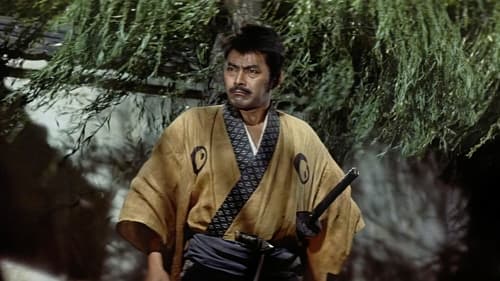
Producer
Esta impresionante historia épica ha sido a veces etiquetada como la versión japonesa de "Lo Que El Viento Se Llevó". Chusha Ichikawa personifica a un señor feudal poderoso y despiadado que lucha contra el virtuoso y joven noble, Yuzo Kayama. Ichikawa encuentra una victoria parcial cuando engaña a Kayama y lo convence de hacerse el Hara Kiri. La venganza será realizada por los cuarenta y siete samuráis de Kayama. Basada en una leyenda japonesa venerable, la historia de Chushingura ha sido filmada en varias ocasiones, pero sólo la versión de 1941 (47 Ronin) estuvo a la altura de la versión de 1962, del gran director Hiroshi Inagaki.

Director
Esta impresionante historia épica ha sido a veces etiquetada como la versión japonesa de "Lo Que El Viento Se Llevó". Chusha Ichikawa personifica a un señor feudal poderoso y despiadado que lucha contra el virtuoso y joven noble, Yuzo Kayama. Ichikawa encuentra una victoria parcial cuando engaña a Kayama y lo convence de hacerse el Hara Kiri. La venganza será realizada por los cuarenta y siete samuráis de Kayama. Basada en una leyenda japonesa venerable, la historia de Chushingura ha sido filmada en varias ocasiones, pero sólo la versión de 1941 (47 Ronin) estuvo a la altura de la versión de 1962, del gran director Hiroshi Inagaki.
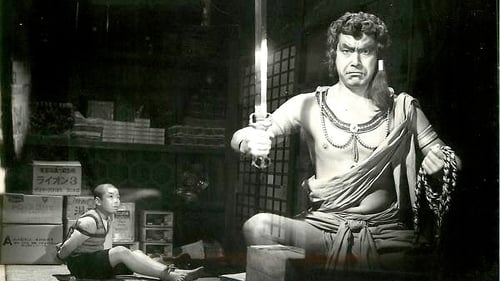
Director
Gen is a lonely orphan boy. His sole sense of companionship comes from an imaginary friend, the god Prince Fudo-Myo. Prince Fudo-Myo comes to the boy's rescue in times of difficulty.

Writer
During the raging war between the Toyotomi and Tokugawa clans, the swordsman Mohei (whose family has been completely decimated) is recruited by Toyotomi to overcome the seat of power, Osaka Castle. Mohei's daredevil skills will be put to severe tests.

Director
During the raging war between the Toyotomi and Tokugawa clans, the swordsman Mohei (whose family has been completely decimated) is recruited by Toyotomi to overcome the seat of power, Osaka Castle. Mohei's daredevil skills will be put to severe tests.

Director
A skilled country doctor's talents are such that he can even perform operations as difficult and novel as removing a patient's kidney for the first time in Japan. Unfortunately for him, however, his wife's addiction to gambling is of such a magnitude that he is down to selling his underwear to make money. The image sticks and he becomes known as the 'underwear doctor.' On the other hand, his successful surgery's patient is so grateful he himself wants to become a physician.
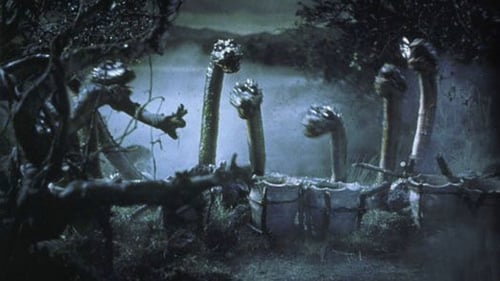
Director
The legend of the birth of Shintoism. In Fourth Century Japan, the Emperor's son Ouso expects to succeed his father on the throne, but Otomo, the Emperor's vassal, prefers Ouso's stepbrother, and conspires to have Ouso die on a dangerous mission he has contrived. But Ouso prevails in the mission and returns to his father's castle under a new name, Prince Yamato Takeru. Otomo plots to have the Prince sent into even greater danger, but Otomo is unaware that the gods have favored the Prince and the outcome is far from what any of them expected.

Writer
Edmund Rostand's play Cyrano de Bergerac, transplanted to Japan. A poet-warrior with an oversized nose (matched only by his great heart) loves a lady. But she sees him only as a friend, so he helps another man to woo her by giving him the poetry of his own heart.

Director
Edmund Rostand's play Cyrano de Bergerac, transplanted to Japan. A poet-warrior with an oversized nose (matched only by his great heart) loves a lady. But she sees him only as a friend, so he helps another man to woo her by giving him the poetry of his own heart.
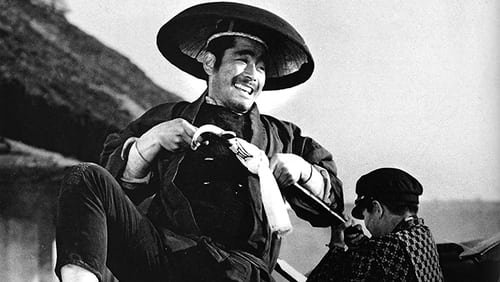
Screenplay
Matsugoro, un pobre conductor de carro en el Japón del periodo Meiji, devuelve a un niño perdido, Toshio, a su casa. Sus padres se muestran con él muy agradecidos. Tras la muerte del padre, la madre, Yoshiko, muy preocupada por su hijo, le pide a Matsugoro que le ayude a educarlo. Él acepta encantado. Con el paso del tiempo le coge mucho cariño, al niño y a la madre. Pero Toshio crece, y se marcha a estudiar a la universidad de Tokio, y Matsugoro se siente abandonado y triste...

Director
Matsugoro, un pobre conductor de carro en el Japón del periodo Meiji, devuelve a un niño perdido, Toshio, a su casa. Sus padres se muestran con él muy agradecidos. Tras la muerte del padre, la madre, Yoshiko, muy preocupada por su hijo, le pide a Matsugoro que le ayude a educarlo. Él acepta encantado. Con el paso del tiempo le coge mucho cariño, al niño y a la madre. Pero Toshio crece, y se marcha a estudiar a la universidad de Tokio, y Matsugoro se siente abandonado y triste...

Director
Continuación de la historia de "Ninjitsu", realizada un año antes por el propio Hiroshi Inagaki

Screenplay
In the Tokugawa Era, the clan of Lord Yagyu has hidden away three scrolls containing clan secrets which, if revealed, would cause revolution and disaster for the clan. The information is divided among the three scrolls, all of which must be possessed for the secrets to be understood. When Princess Yuhime steals the scrolls, Tasaburo, a samurai with magical powers, and his brother Senshiro are sent to retrieve them.

Director
In the Tokugawa Era, the clan of Lord Yagyu has hidden away three scrolls containing clan secrets which, if revealed, would cause revolution and disaster for the clan. The information is divided among the three scrolls, all of which must be possessed for the secrets to be understood. When Princess Yuhime steals the scrolls, Tasaburo, a samurai with magical powers, and his brother Senshiro are sent to retrieve them.

Director
With one of the busiest film industries in the world, Japan was able to submit several films into competition at the 1957 Berlin Film Festival. One of the best of these was Arashi, directed by Hiroshi Inagaki of Rickshaw Man fame. Anticipating Hollywood's Table for Five by nearly a quarter of a century, the film concerns the efforts by a recently widowed high-school teacher to raise his four children alone. Chihu Ryu is terrific as the central character, while Izumi Yukimura is even better as Ryu's eldest daughter. For reasons unknown, Arashi is often omitted from "official" lists of Inagaki's films.
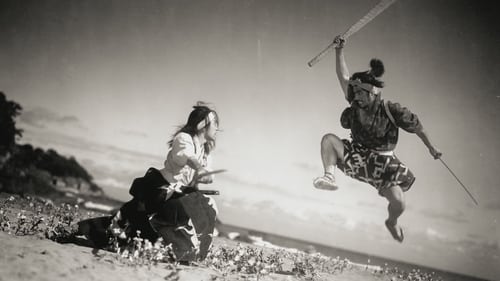
Writer
Takezo abandona su condición de samurai errante para vivir tranquila y humildemente con su amada Otsu, rechazando trabajar como maestro samurai para el líder del clan más poderoso del Japón. No obstante, Takezo accede a luchar con el joven y habilidoso guerrero Sasaki Kojiro. El combate final tendrá lugar en la isla Ganryu.

Director
Takezo abandona su condición de samurai errante para vivir tranquila y humildemente con su amada Otsu, rechazando trabajar como maestro samurai para el líder del clan más poderoso del Japón. No obstante, Takezo accede a luchar con el joven y habilidoso guerrero Sasaki Kojiro. El combate final tendrá lugar en la isla Ganryu.

Screenplay
Forced on the road by yakuza obligations, a man sets out on a reckless journey to Tsumagoi. Movie posters for local cinemas were often displayed at sento (public baths) too. The handwritten text on the bottom here announces the film will play at Hassen for 3 days.

Director
Forced on the road by yakuza obligations, a man sets out on a reckless journey to Tsumagoi. Movie posters for local cinemas were often displayed at sento (public baths) too. The handwritten text on the bottom here announces the film will play at Hassen for 3 days.
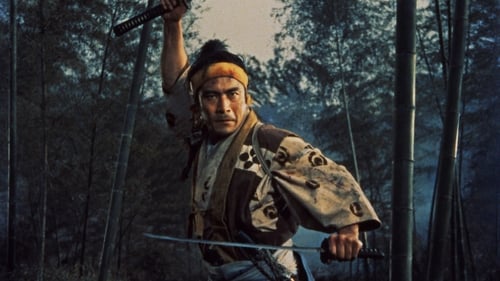
Writer
Tras años recorriendo multitud de lugares, labrando su reputación como el más grande luchador del Japón, Takezo regresa a Kioto para enfrentarse al líder de la más prestigiosa escuela de samurais de la región. Como demostración de su valor, Takezo se dirige deliberadamente hacia una emboscada preparada por los seguidores de la escuela, mientras el joven y brillante luchador Sasaki Kojiro le observa, con el convencimiento de que puede derrotar a Takezo...

Director
Tras años recorriendo multitud de lugares, labrando su reputación como el más grande luchador del Japón, Takezo regresa a Kioto para enfrentarse al líder de la más prestigiosa escuela de samurais de la región. Como demostración de su valor, Takezo se dirige deliberadamente hacia una emboscada preparada por los seguidores de la escuela, mientras el joven y brillante luchador Sasaki Kojiro le observa, con el convencimiento de que puede derrotar a Takezo...
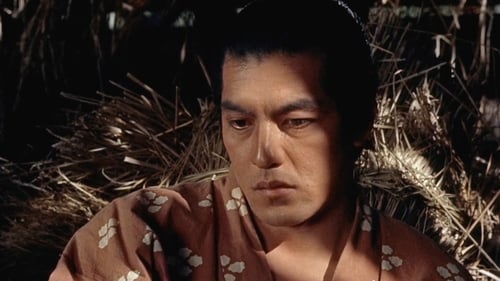
Writer
Dos amigos dejan su pueblo para combatir con su ejército. Ambos, tras una derrota en el frente, se cobijan en la solitaria casa de Oko, una viuda que vive con su hija. Matachachi dejará que Oko le seduzca y, junto con ella y su hija se irá a Tokio, olvidando a su prometida...

Director
Dos amigos dejan su pueblo para combatir con su ejército. Ambos, tras una derrota en el frente, se cobijan en la solitaria casa de Oko, una viuda que vive con su hija. Matachachi dejará que Oko le seduzca y, junto con ella y su hija se irá a Tokio, olvidando a su prometida...

Director
Every year, at the festival, familiar merchants such as Toraemon, a magic trick, Tokubei, a blowgun, Kaji, acrobatics, and Unsaibo, a ritual, gather toward the port town.

Screenplay
1953 Hiroshi Inagaki movie.

Director
1953 Hiroshi Inagaki movie.

Writer

Director
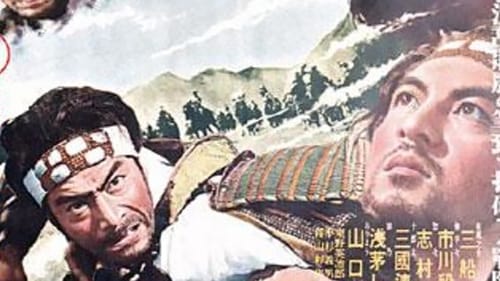
Screenplay
Soldiers Hayate and Yaheiji secretly escape from their besieged castle. Hayate has left behind his lover, Kano. On his way, Hayate is wounded and cared for by O’Ryo, who falls in love with him. But when Hayate accidentally kills her caretaker, he flees, with O’Ryo in pursuit. Subsequently, Hayate's comrade Yaheiji falls in love with Oryo. Kano, the lover left behind by Hayate, believes him dead, and becomes involved with another soldier, Jurota. When Jurota defects to the opposing army, he takes Kano with him. A double set of love triangles has developed, wherein each man and each woman loves one and is loved by another. Finally only combat and self-sacrifice can untangle the weave.

Director
Soldiers Hayate and Yaheiji secretly escape from their besieged castle. Hayate has left behind his lover, Kano. On his way, Hayate is wounded and cared for by O’Ryo, who falls in love with him. But when Hayate accidentally kills her caretaker, he flees, with O’Ryo in pursuit. Subsequently, Hayate's comrade Yaheiji falls in love with Oryo. Kano, the lover left behind by Hayate, believes him dead, and becomes involved with another soldier, Jurota. When Jurota defects to the opposing army, he takes Kano with him. A double set of love triangles has developed, wherein each man and each woman loves one and is loved by another. Finally only combat and self-sacrifice can untangle the weave.

Once an average and seemingly ordinary Tokyo girl, she suddenly finds herself as a TV star owing to her discovery by a casting company, which noticed photographs that her cousin had sent. When another actress falls ill she is given the role instead. Her first film is a success propelling the young actress to popularity, her own fans, money and a house. While everything looks dandy from the outside not all is well within the family however.

Screenplay
Gensaburo Funaki and Oyuki were childhood friends, but Gensaburo misunderstood that Oyuki was hesitant to get married because he had to feed his father and younger brother. I left the town.

Director
Gensaburo Funaki and Oyuki were childhood friends, but Gensaburo misunderstood that Oyuki was hesitant to get married because he had to feed his father and younger brother. I left the town.

Director
___________

Screenplay
1951 Japanese movie

Director
1951 Japanese movie

Writer
Director Hiroshi Inagaki's early version of the life and death of famed swordsman Sasaki Kojiro. Otani Tomoemon gives a brilliant performance as Sasaki Kojiro, who rises from humble beginnings to national fame, and a young Toshiro Mifune appears as the legendary master swordsman Miyamoto Musashi for the first time and essentially sets the standard for future portrayals.This masterpiece is based on the original story as written by noted author Murakami Genzo and is far superior to any other versions. Following Kojiro from his earliest days through his fateful meeting with Musashi, this movie is filled with exciting and dramatic moments culminating in the best version of the final duel ever seen on film.

Director
Director Hiroshi Inagaki's early version of the life and death of famed swordsman Sasaki Kojiro. Otani Tomoemon gives a brilliant performance as Sasaki Kojiro, who rises from humble beginnings to national fame, and a young Toshiro Mifune appears as the legendary master swordsman Miyamoto Musashi for the first time and essentially sets the standard for future portrayals.This masterpiece is based on the original story as written by noted author Murakami Genzo and is far superior to any other versions. Following Kojiro from his earliest days through his fateful meeting with Musashi, this movie is filled with exciting and dramatic moments culminating in the best version of the final duel ever seen on film.

Producer
The Forgotten Children

Screenplay
The Forgotten Children

Director
The Forgotten Children

Director
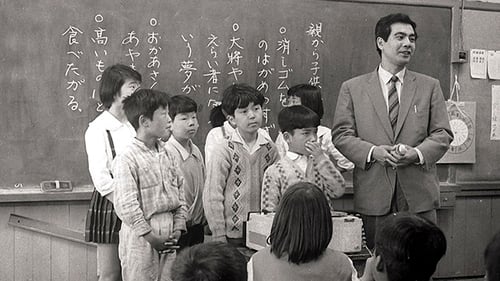
Director
A small-town boy with a learning disability attempts to fit in with his classmates.

Director
During the Taiping Rebellion of the mid-19th century, anti-Qing (Manchu) Chinese forces led by Taiping commander Li Xiucheng march on Shanghai. Although the Western powers are officially neutral, the British consul in Shanghai sides with the Qing imperial government, and counter to his own government's policy he retains American adventurer Frederick Townsend Ward to raise a mercenary force of foreigners in Shanghai and oppose the Taipings. Ward's force is routed, with heavy casualties, but since many of the casualties are British, the British army soon is drawn in on the side of the Qings. The only support for the Chinese comes from Japanese in Shanghai and anti-imperialist demonstrations in Japan. A family drama plays out against this historical background. After a Chinese home is destroyed by careless British shelling, killing the father and crippling a daughter, the surviving son vows revenge but begins to see that his true friends may be the Japanese.

Director
Matsugoro is a poor rickshaw driver whose animated spirit and optimistic demeanor make him a favorite of the town. Matsu helps an injured boy, Toshio, and is hired by the boy's parents.
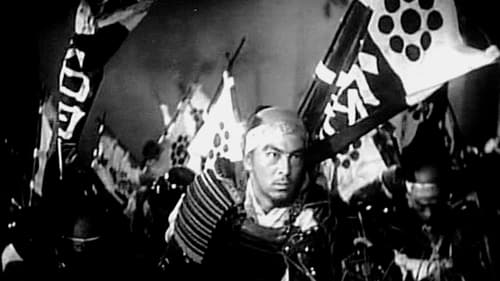
Screenplay
The life, adventures and exploits of warlord Date Masamune the One-eyed Dragon: his early youth as an aggressive warrior, the battles he won until subduing almost all his enemies, the lonely comprehension of knowing that he actually can not take over the whole country because he was born too late.

Director
The life, adventures and exploits of warlord Date Masamune the One-eyed Dragon: his early youth as an aggressive warrior, the battles he won until subduing almost all his enemies, the lonely comprehension of knowing that he actually can not take over the whole country because he was born too late.

Writer
It is a historical drama that follows Katsu Kaishu's efforts to surrender Edo Castle bloodlessly in the first year of the Meiji period.

Director
It is a historical drama that follows Katsu Kaishu's efforts to surrender Edo Castle bloodlessly in the first year of the Meiji period.

Director
There is an inn named Asano Ya in the port town, and a beautiful woman works there. Every year, during a local festival, travelling artists and teachers gather from all over the country, including sesame oil sellers and organ grinders. The day before the festival, trouble arises with some horses.

Director
The rise to power of Toyotomi Hideyoshi from a farmer's son.
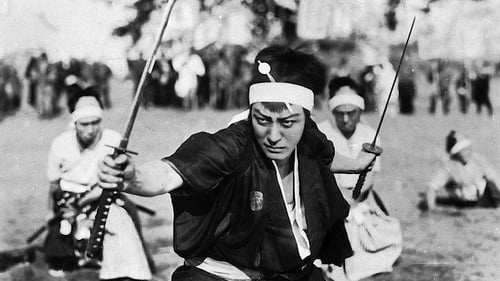
Director
The tale of Nakayama Yasubei’s duel is famous, even if he in reality probably did not cut down 18 opponents. The story has been related in film, rakugo, kodan and on stage many times, in part because Nakayama later joined the famous 47 Ronin (Chushingura) as Horibe Yasubei. But Makino and Inagaki’s version gives no hint of this more serious future, playing up the thrills and the comedy with Bando’s bravura performance. The multiple pans of Yasubei running to the duel are an exemplar of the experimental flourishes of 1930s Japanese cinema and the final duel, performed virtually like a dance number, is a marker of Makino’s love of rhythm and one of the best sword fights in Japanese film history. The film was originally released under the title Chikemuri Takadanoba (Bloody Takadanobaba) with a length of 57 minutes, but suffered some cuts and a title change when it was re-released in 1952.

Writer
Story of a bandit king part 2.

Writer
Story of a bandit king.

Screenplay
The sequel to the 1935 film Great Bodhisattva Pass

Director
The sequel to the 1935 film Great Bodhisattva Pass

Screenplay
1930s Japanese film.

Director
1930s Japanese film.

Director

Writer

Director

Writer
Chutaro, un jugador que vive solo en el mundo, viaja a Edo para buscar a su madre, que le abandonó cuando era niño. Finalmente se encuentran, pero...

Director
Chutaro, un jugador que vive solo en el mundo, viaja a Edo para buscar a su madre, que le abandonó cuando era niño. Finalmente se encuentran, pero...

Director
Date Mosui, a young samurai, one day gets a scolding from a nameless ronin that sets him thinking about what life is all about and his ways of living. His frined, Ando Kichinosuke, is alarmed at Mosui's despondency and invites him to his house as his little sister Tsuyu and he try to cheer him up.
